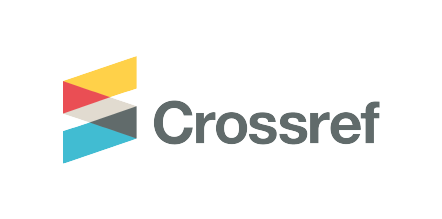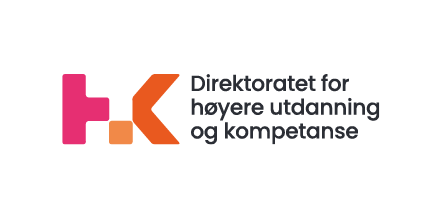Tackling Disability of Speech due to Stroke: Perspectives from Stroke Caregivers of the University Teaching Hospital in Zambia
DOI:
https://doi.org/10.21776/ub.ijds.2019.006.02.12Keywords:
Aphasia, Caregiver, Experiences, Stroke, DisabilityAbstract
Many stroke survivors usually have permanent disability such as aphasia, which results in the need for support from caregivers. Care required for stroke survivors differs depending on the type of stroke but there is little research done in this regard. However, current literature provides evidence that support services and interventions for caregivers, especially in relation to managing affective symptoms, are unsatisfactory. The aim of this study was to explore the experiences of caregivers handling aphasic stroke patients at the University Teaching Hospital. An explorative study utilizing qualitative phenomenological approach was utilized with sample of 15 participants who by purposeful sampling were drawn and using thematic method of analysis. This study found that caregivers go through a lot of things in caring for their loved ones and their experience involve a complicated and sometimes unpredictable interplay of multiple processes. Lack of preparedness in assuming the role of caregiving caused the caregivers to go through what seemed to be insurmountable challenges. There is therefore need of caregiver education so that they can deliver appropriate care to the stroke survivors.
References
National Stroke Foundation. Walk in our shoes: Stroke survivors and carers report on support after stroke. Melbourne, VIC: 2015. National Stroke Foundation.
Mackenzie A, Perry L, Lockhart E, Cottee M, Cloud G.. Family caregivers of stroke survivors: needs, knowledge, satisfaction and competence in caring. Disability and Rehabilitation, 2014;29(2), 111-121.
Ueda K, Teruo O, Hirota Y. Decreasing trend in incidence and mortality from stroke in Hisayama residents, Japan. Stroke, 2015; 12 (2): 154-160.
Low J, Payne S, Roderick P. The impact of stroke on informal carers: A literature review. Social Science & Medicine, 2014; 49, 711-725.
Hackett M, Yapa C, Parag V, Anderson C. The frequency of depression after stroke: a systematic review of observational studies. Stroke, 2013; 36, 1330-1340.
Christensen J, Hearn J, Bruno P. Projecting the number of patients with first ever strokes and patients newly handicapped by stroke in England and Wales. British Medical Journal, 2015; 298: 656-660.
Pinquart M, Sorensen S. Correlates of physical health of informal caregivers: a meta-analysis. The Journals of Gerontology, 2006; 62B, 126-137.
Visser-Meily A, Post M, Schepers V. Spouses quality of life 1 year after stroke: Prediction at the start of clinical rehabilitation. 2015. Cerebrovascular diseases.
Dowswell G, Lawler J, Young J, Hearn J. A qualitative study of specialist nurse support for stroke patients and care-givers at home. Clinical Rehabilitation 2010; 11, 293-301.
Grant J, Bartolucci A, Elliott T. Sociodemographic, physical, and psychosocial characteristics of depressed and non-depressed family caregivers of stroke survivors. Brain Injury, 2014; 14(12), 1089-1100.
Pierce L, Steiner V, Hicks B, Holzaepfel A. Problems of new caregivers of persons with stroke. Rehabilitation Nursing, 2007; 31(4), 166-172.
Scholte op Reimer M, Haan R, Rijinders P. The burden of caregiving in partners of long-term stroke survivors. Stroke, 2006; 29, 1605-1611.
Anderson M, Hearn S, Cloud G. Projecting the number of patients with first ever strokes and patients newly handicapped by stroke in England and Wales. British Medical Journal, 2016; 298: 656-660.
Parag D, Haan R. Shoulder pain after stroke: A review of the evidence base to inform the development of an integrated pathway. New York, USA: 2o13;111-115.
Han B, Haley W. Family caregiving for patients with stroke: Review and Analysis. Stroke; 2010; 30, 1478-1485.
Bugge C, Alexander H, Hagen S. Stroke Patient's Informal Caregivers. Patient, Caregiver and Service Factors that affect Caregiver strain. Stroke, 2011; 30, 1517-1523.
Alvarez J, Delgado P, Abilleira S, Molina C, Arenillas J, Ribo´ M. Temporal profile of matrix metalloproteinases and their inhibitors after spontaneous intracerebral hemorrhage: relationship to clinical and radiological outcome. Stroke; 2016; 35:1316-22.
Brian Chanda Chiluba and Wana Gift Njapawu. arriers of Persons with Physical Disability over Accessibility and Mobility to Public Buildings in Zambia. Indonesian Journal of Disability Studies (IJDS).2019: Vol. 6(1): PP 53 - 63.
Victoria Chuni, Brian Chanda Chiluba, Moses Mwango, Esther Munalula-Nkandu, Hastings Shula. An Exploration of the Knowledge of Informal Caregivers on Ageing Related Health Conditions at Matero and Chawama Old People's Homes, Zambia. International Journal of Neurologic Physical Therapy. Vol. 4, No. 1, 2018, pp. 1-6. doi: 10.11648/j.ijnpt.20180401.11.
Downloads
Published
How to Cite
License
Copyright (c) 2019 Brian Chanda Chiluba

This work is licensed under a Creative Commons Attribution-NonCommercial 4.0 International License.















